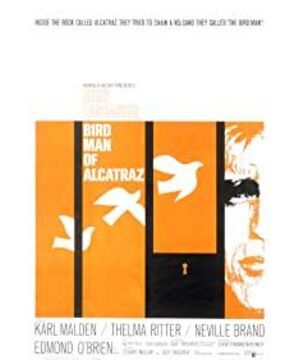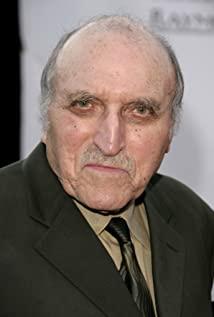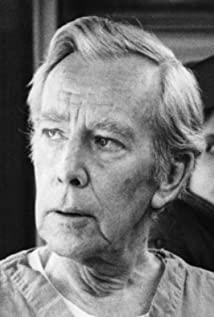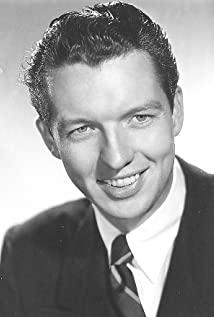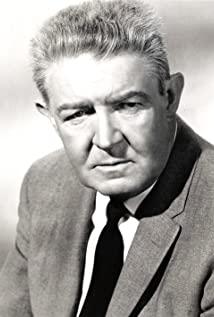When a film intersects with reality, my attention tends to gravitate toward the side of reality to which it relates, in direct proportion to the closeness and propensity of that connection.
The film The Birdman of Alcatraz is based on a real story in the usual way. His name is Robert Franklin Stroud. Here is a brief biography of him based on the English Wikipedia material. I hope it will be helpful to those who care about this film.
Mr. Stroud, Robert Franklin Stroud was born on 28 January 1890 and died on 21 November 1963. Nicknamed "Birdman of Alcatraz", he was a convicted murderer, federal prisoner, and author. Apparently, in America at the time, his popularity was not much different from that shown in the movies, when he was regarded to a certain extent as a famous ornithologist, and most of these actions that built his reputation occurred when he was in Stages of a sentence at Leavenworth Prison. In 1942, after he was transferred to Alcatraz, "Alcatraz", he was not allowed to keep birds. He was never released from the prison system throughout his life. In 1959, he was transferred to the Missouri Prison System Hospital until his death on November 21, 1963.
Mr. Stroud was born in Seattle to his mother, Elizabeth Jane, and his father, Benjamin Franklin Stroud. He had been abused by his alcoholic biological father, so he ran away at the age of 13 and started--going around. At 18, he wandered to Alaska to work as a pimp. During this time Stroud met Kitty O'Brien, 36, a prostitute and dancer. Stroud pimped the woman while they were living in Juneau, Alaska. On January 18, 1909, in Stroud's absence, a bartender named Charlie von Dahmer wouldn't pay for a spring break, beat Kitty O'Brien, and ripped off the woman's necklace with a picture of her daughter. Stroud took revenge after knowing about it. When he turned himself in to the police, he mentioned that he "stunned the other party, and then shot him at close range." So he was sentenced to 12 years in prison for manslaughter and served in prison in Mike. Neil Island.
He was one of the most violent prisoners at this stage on McNeill Island, he often clashed with other prisoners and even guards, he stabbed a prisoner who allegedly stole food from the cafeteria, and stabbed a prisoner who was said to be smuggling drugs… On September 5, 1912, he was moved from McNeill Island to Leavenworth Prison, Kansas, and in 1916, the cafeteria jailer Andrew F. Turner accused him of violating the petty rules, thus barring Stroud's younger brother from visiting him , the brothers have not seen each other for 8 years. So Stroud pierced Turner's heart with a shiv, a knife made in prison. In the first instance, Stroud was hanged by a judge for first-degree murder, which was then overturned by an appeals court. On May 28, 1917, he was found guilty in the second trial and sentenced to life imprisonment. At this time, a deputy attorney general named John Davis influenced the verdict, and he hoped to execute Stroud. So, in May 1918, a third trial was held and he was sentenced to death again.
Then his mother ran and complained, and even went to Datian to listen to Woodrow Wilson, then "Boli Xitian De", so the sentence was reduced on the eighth day before the execution. The director of Leavenworth Prison, TW Morgan, was adamantly opposed to the outcome, he told the President and persuaded him that Stroud, who was notorious for his violence, was sentenced to solitary confinement awaiting the death penalty should continue until the death penalty could be carried out. .
In 1920, Mr. Stroud found a bird's nest in the yard with three sparrows in it, so he began to take care of these sparrows, and he never got them. At that time, prisoners could buy and raise canaries. Within a year, his flock had grown to the size of 300 canaries. Not only can it be bought, raised, and sold, Stroud's bird-raising income is not only used for bird-raising, but also subsidizes his mother's life.
Of course, these actions were carried out with the approval of a new warden, who noted that Stroud's performance made the prison impressively advanced. The warden, William Biddle, even Provide Stroud with items including bird cages, chemicals, stationery, etc. for his birding activities. During this period, Mr. Stroud conducted extensive research on birds. He wrote Canary Disease, which was then taken privately from prison and published in 1933, and a decade later, a second book, Stroud's Summary of Bird Diseases. Mr. Stroud of this period is considered to have made important contributions to avian pathology, especially the treatment of septicemia, which earned him sympathy and respect among bird lovers. But a prisoner's achievements in prison clearly created a sharp conflict between him and his guards. So he was transferred to "Alcatraz" in 1942 after being caught stealing alcohol from his research equipment
From December 19, 1942, Mr. Stroud began his 17-year sentence on Alcatraz, number 594. In 1943, Mr. Stroud was diagnosed with psychosis by psychiatrist Romney M. Ritchey, a psychopath with an IQ of 112. He was said to have been given no advance notice of his transfer and had to leave within 10 minutes. Due to the policy implemented by "Alcatraz", he could not continue to keep birds, so he gave something to his brother. In "Alcatraz" Stroud was widely rumored to be gay...Many people had a bad impression of him, thinking he was a violent person, and it was said that "the real Stroud is more sinister than the one depicted in the book and movie, Dangerous and unpleasant"
In 1955, Thomas E. Gaddis wrote Stella's story into a book, "Birdman of Alcatraz". Gaddis is a writer who strongly advocates that people can reform in prison. In this book, he describes the angle Considered very friendly. In 1962, the film was created. But Stroud himself never saw the film.
Basically, this is his whole life.
View more about Birdman of Alcatraz reviews


